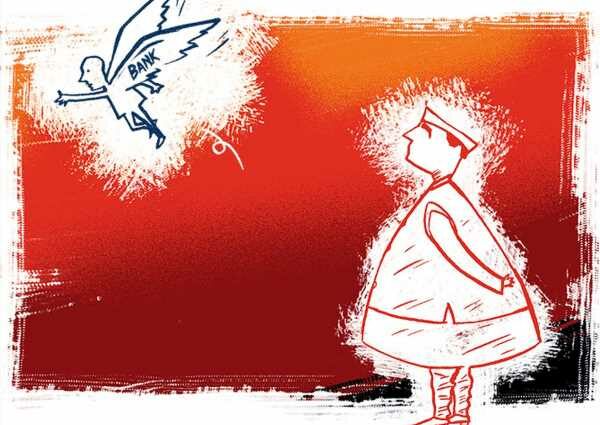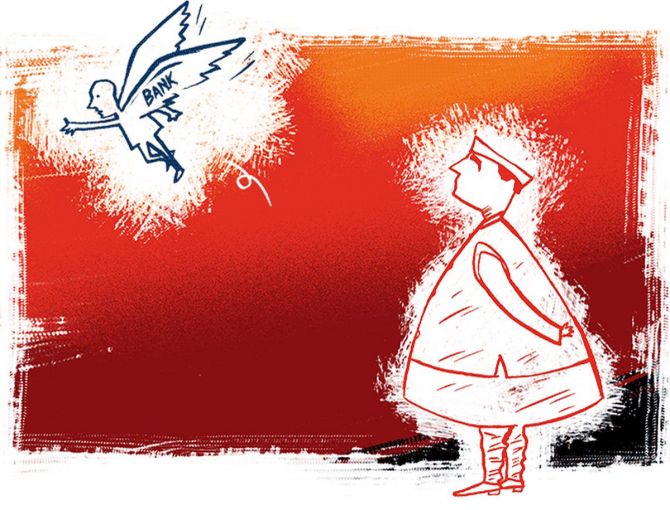Fundraising through qualified institutional placement (QIP) has revived this year, led by commercial banks, after a lacklustre 2022.
According to data compiled by Prime Database, Indian companies have raised Rs 53,070 crore in 2023 so far, of which seven banks – Union Bank of India, Indian Bank, Bank of India, Federal Bank, IDFC First Bank, Bank of Maharashtra, and J&K Bank – account for Rs 21,290 crore, or about 40 per cent.
If other financial institutions are included, the figure surges to Rs 26,690 crore.
In 2017 and 2020, banks had garnered more funds via QIPs than this year.
Listed companies use the QIP route to raise capital by issuing shares or other equity-convertible instruments to qualified institutional buyers.
After cleaning up their balance sheets over the past few years, banks are reporting healthy growth with a rise in net profit and improvement in asset quality, which has attracted investors’ attention.
“Banks have stabilised over the past two or three years, especially PSU banks.
“They have cleaned their balance sheets, are attractively valued, and are a large part of the index.
“There is growth in assets, and lending is increasing, which requires banks to raise Tier 1 capital.
“With the availability of funds, which is there at the right price, they are going ahead and raising funds,” said Pranjal Srivastava, partner-investment banking, Centrum Capital.
Interest rates have also stabilised this year, as the Reserve Bank of India has kept the policy repo rate unchanged since February.
Between May 2022 and February 2023, the repo rate was raised by 250 basis points to 6.5 per cent.
“Last year, we had a rising interest scenario, and there was net interest margin (NIM) compression.
“When NIM compression happens, stocks do not move, and it is hard to raise capital.
“This year, since March, interest rates have not gone up, so all the bank and NBFC stocks have revived, and it has become easier to raise capital.
“In a growing economy, BFSI will need capital continuously,” said Ajay Garg, managing director of Equirus.
The Bank Nifty has gained 11.4 per cent in 2023 so far, as against 18.5 per cent gains posted by the Nifty50 index in this period.
“When the economy is doing well, the credit cycle will move up. And banks will be required to raise capital because of the credit growth we are witnessing. Companies are putting large capex, especially manufacturers.
“So, we will see more QIPs happening from manufacturing companies and financials,” said Dharmesh Mehta, managing director and chief executive officer of DAM Capital.
The good run of QIPs is also expected to spill into the next year, particularly in the run-up to the general elections in April-May.
Investment bankers estimate $5-7 billion of QIPs next year, and banks and financial institutions are likely to constitute 70 per cent of the fundraising.
“QIP is the fastest mode of fundraising for a listed entity. More are expected next year.
“The outlook is positive, and the upbeat investor sentiment is expected to continue.
“The pre-election rally is likely to happen. Banks will dominate the QIP pipeline next year because of the nature of their business.
“Capital is the raw material for banks.
“They need to raise capital after a gap and whenever there is growth in balance sheets,” said Srivastava of Centrum Capital.
Source: Read Full Article
-
Twitter Sued By Music Publishers For Copyright Infringement
-
America’s Modern Ghost Towns
-
Slash Agency’s Erica Plotkin & Olivia Peeke Team To Launch Management, Production & Brand Development Firm Intention
-
Max Marketing Staff Sees Layoffs
-
Confused over UV definition, car companies await govt notification on cess


